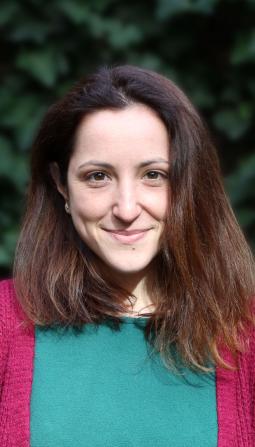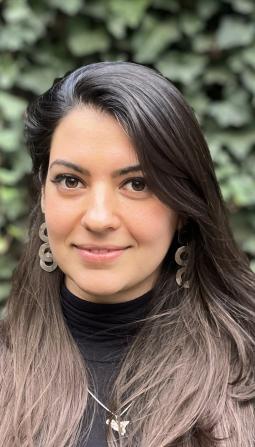HORIZON-MISS-2024-SOIL-01-01: Danish public-private partnership interested in joining a consortium
- Helle Bech Sørensen-Hylle
- 13/02/2024
-
Funding ProgrammeHorizon Europe
-
Deadline for Expression of Interest31 July 2024
-
NameHelle BechOrganisation NameSouth Denmark EU Office
- Get in Touch
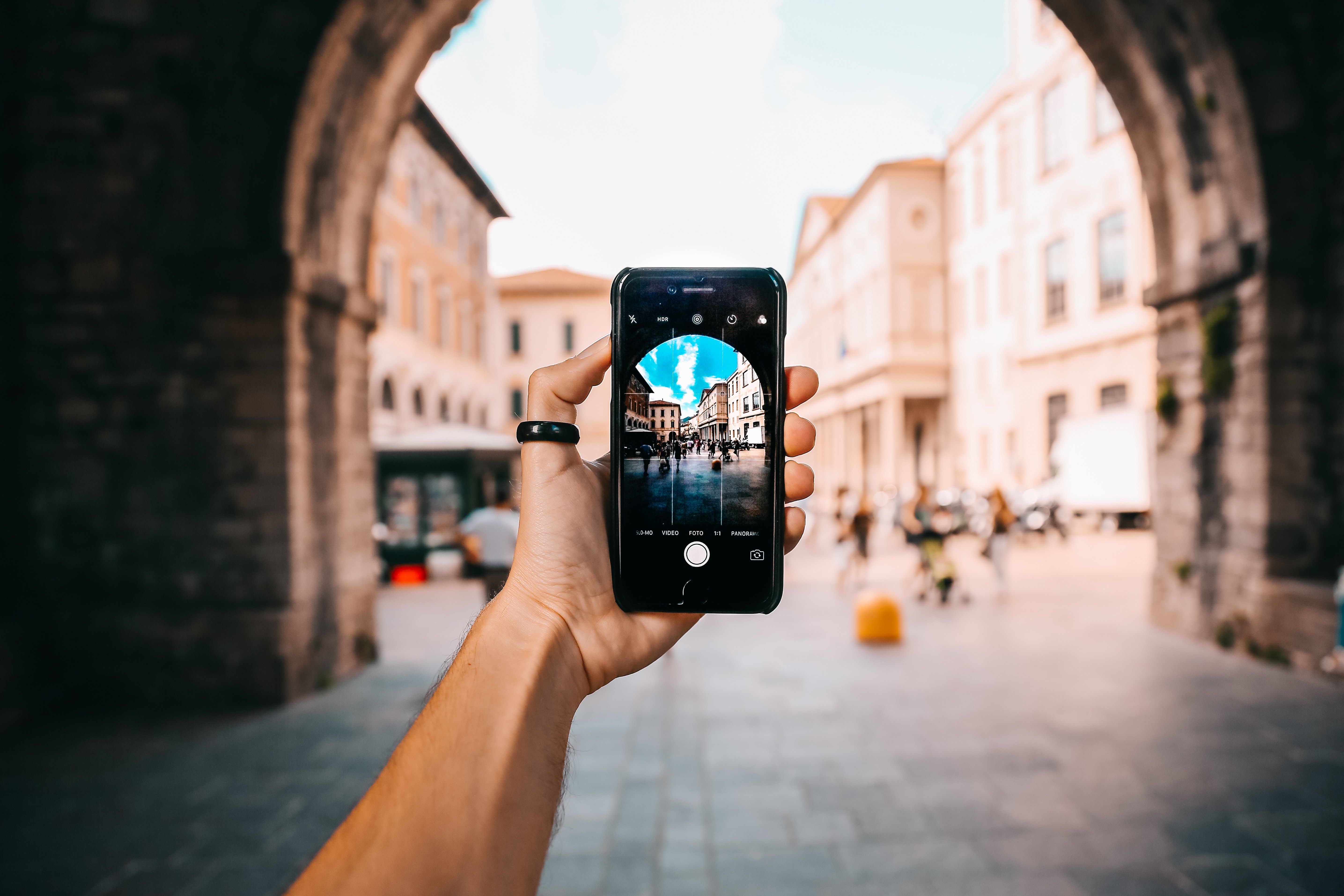
Join the ERRIN Cultural Heritage and Tourism WG: Call for a new leader
The Cultural Heritage and Tourism Working Group is looking for a new leader with an EU Tourism policy focus to join the Working Group leadership with Aragón Exterior, Free Hanseatic City of Bremen, Scotland Europa and North-East Romania.
Being a Working Group leader allows members to advance regional priorities and set the agenda for their Working Group and the wider network, strengthening collaboration between members in their thematic area.
The Cultural Heritage and Tourism Working Group has two main lines of action: Sustainable Tourism and Cultural Heritage, and the policies and actions that link the two areas. The WG investigates R&I-related measures to mitigate touristic flows' environmental and social impact and encourage the transition towards sustainable tourism and cultural policies and practices. To this end, the WG support ERRIN members in the uptake of digitalisation and developing skills and competences in the Cultural Heritage and Tourism sectors.
Finally, the Working Group aims to provide early information to members on cultural heritage and tourism policy future strands, financial tools, inter-regional joint activities, and EU calls. The WG strives to acknowledge the value of Cultural Heritage for European societies regarding identity, which goes beyond its role in tourism.
To expand the expertise of the leaders’ group, we are looking for a member with deep knowledge and interest in EU Tourism policies and awareness of regional needs in the sector – preferably combined with a general knowledge of Cultural Heritage policies due to the dual focus of the working group. Among other criteria, we will consider the capacity and the portfolio of the candidate and the member organisation (e.g. involvement in related EU projects or initiatives), as well as geographical and gender balance among leaders.
Please express your interest by emailing francesca.pozzebon@errin.eu and teresa.vio@errin.eu, starting your professional motivation and what you would like to achieve as a working group leader by 8 March 2024 EOB.
- Francesca Pozzebon
- 12 February 2024
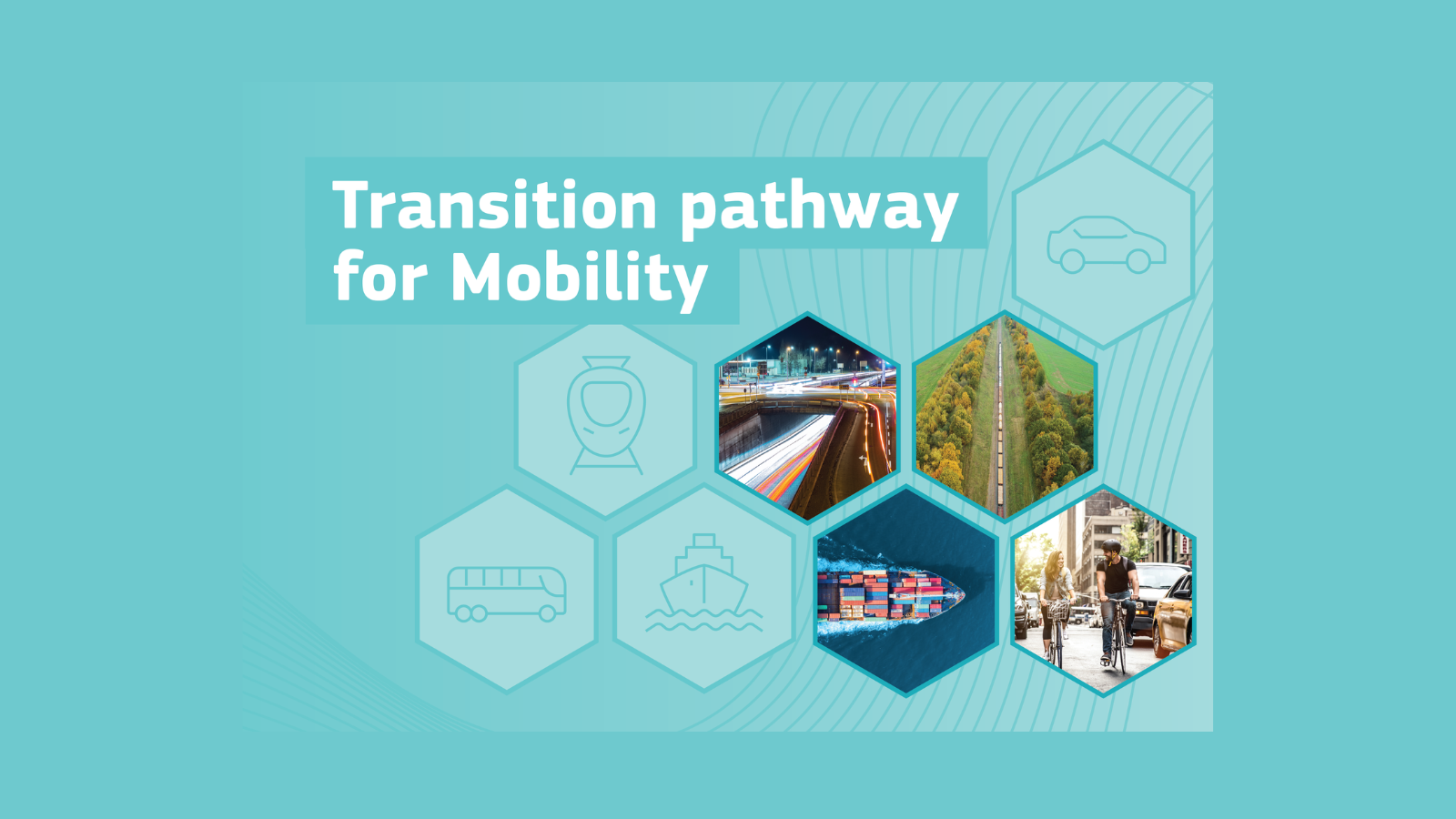
A new transition pathway for a green, digital, and resilient EU mobility industrial ecosystem
The European Commission launched a new transition pathway for the EU mobility industrial ecosystem, outlining a strategic roadmap for a sustainable and resilient future.
The EU mobility transition pathway, co-created in collaboration with national and regional authorities, industry stakeholders, NGOs, and other interested parties, aims to boost the European Union's commitment to fostering innovation, green technologies, and digital advancements within the mobility sector.
Aligned with the updated EU industrial strategy, the plan encompasses the entire automotive, rail, waterborne, and cycling value chains and related services. This collaborative effort aims to drive sustainable practices, reduce environmental impact, and enhance overall resilience within the mobility sector.
The report outlines seven main thematic blocks:
- Sustainable competitiveness
- Regulation and public governance
- Social dimension
- Skills
- R&I and technological solutions
- Infrastructure
- Investment and funding
The report will also be presented during an event in Brussels on 29 February 2024. Find more information and register here.
ERRIN will organise a dedicated meeting on the transition pathways. More information will be published soon.
- Gaia Ialisa Marotta
- 12/02/2024
-
Working Group
Gaia Ialisa Marotta
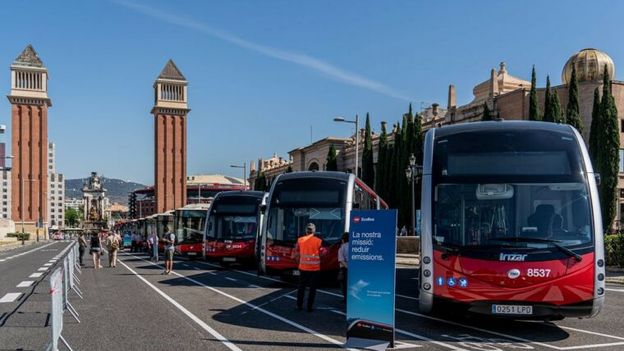
Improvement of the bus network service in Barcelona
The Barcelona Innova Lab Mobility is a project born through the Barcelona City Council and its mobility department, in collaboration with Fira de Barcelona and the Barcelona Institute of Technology for the Habitat (Bit Habitat). The Lab's mission is to promote and boost innovation in smart and sustainable urban mobility, according to the Sustainable Development Goals (SDGs) of the 2030 Agenda.
This year’s challenge is the Improvement of the bus network service in Barcelona. Public transport by bus is growing lately and is intended to increase its position as one of the basic mobility options in the city. Therefore, the system must be prepared for an expected growth in demand. As a result, there is a need to develop projects aimed to prepare the bus service network for the future while continuing to deliver a high-level service.
The proposal should be designed to:
- Improve the user experience on the buses and the rest of the infrastructure, as those related to accessibility, security or interoperability
- Optimize the efficiency of the bus service in the city to reduce travel time and improve coexistence with other vehicles
- Develop and optimise technologies that improve current services associated with self-driving buses to ensure an inclusive, safe, and quality service.
The maximum duration of the project must be 18 months, of which the pilot phase with monitoring must be at least 6 months. The pilot phase must allow the evaluation of the results and validation of the solution.
The challenge is endowed with the MAXIMUM amount of TWO HUNDRED THOUSAND EUROS (200,000.00 euros), while the maximum amount to be awarded for each project will be 100,000 euros, and the minimum is 40,000 euros.
For additional information, contact:
- Karim Hassan - khassan@catalonia.com
- Mariona Campmajó - mcampmajo@catalonia.com
For further information on the challenge as well as the regulatory bases, please find the opportunity in the following link: https://www.tomorrowmobility.com/barcelonainnovalabmobility/
- Mariona Campmajó
- 12 February 2024
-
Deadline05 March 2024
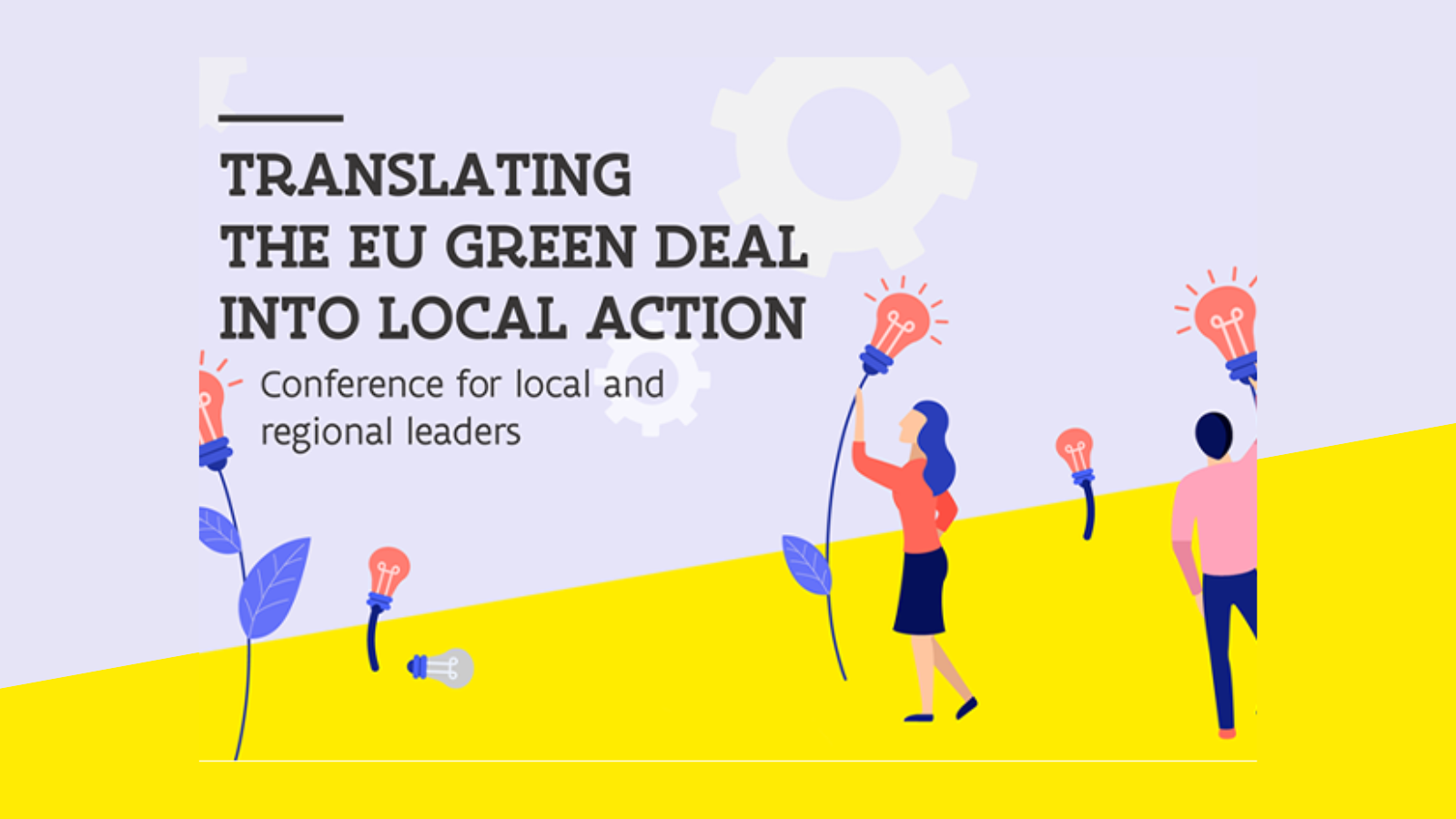
Translating the EU Green Deal into local actions
This conference on Translating the Green Deal into Local Action is organised on 15 March in Brussels under the Belgian EU Presidency.
The conference aims to highlight how to implement the EU Green Deal, which requires a new multi-level governance framework with bridges between the EU initiatives and more direct funding solutions. The conference offers an opportunity for participants to be inspired by best practices from across Europe and to experience in-depth sessions with experts from the local to the European level.
Find more information on the event and the registration here.
- 15/03/2024 - 09:00 - 15/03/2024 - 17:30
-
Paul-Henri Spaak Building
Rue Wiertz 60
1047 Brussels
Belgium - Heidi Johansson
-
Working Group
Development of an AI-based solution for tourism in inland areas
- Licia Calvi
- 09/02/2024
-
Funding ProgrammeHorizon Europe
-
Deadline for Expression of Interest15 March 2024
-
NameLicia CalviOrganisation NameBreda University of Applied Sciences
- Get in Touch
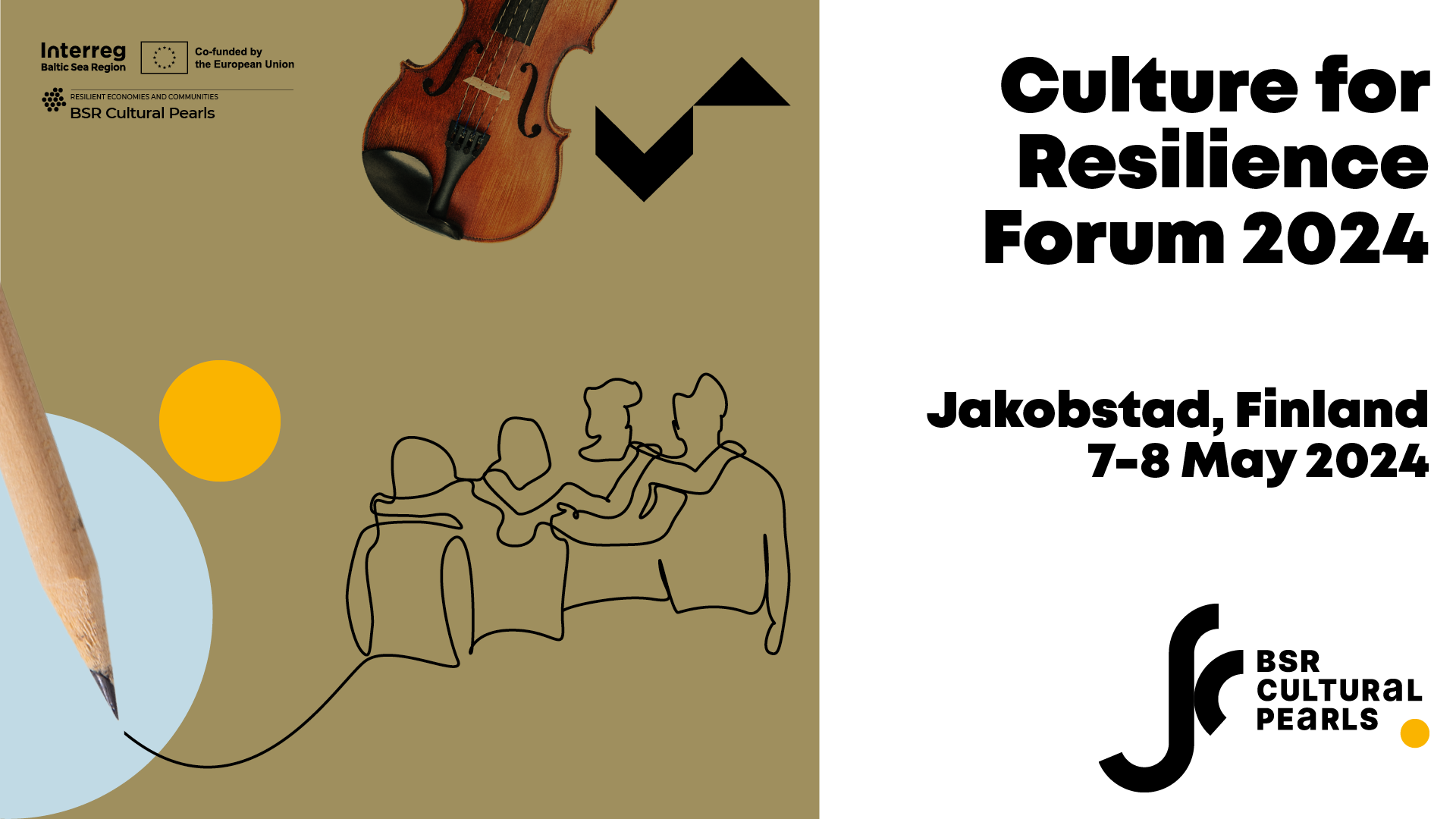
Culture for Resilience Forum 2024
The Culture for Resilience Forum 2024, an event focusing on the role of culture in societal resilience and community strengthening, is set to take place in Jakobstad, Finland, on May 7-8, 2024. Pre-registration is now open.
The forum offers an unparalleled platform for exploring the link between culture and social resilience in these times of change and uncertainty, underscoring the need to strengthen our communities. It notably provides insights into the role of culture in bolstering community strength and resilience to various challenges. Additionally, the forum examines the strategic roles of culture in place-making. It presents a unique opportunity to engage with key cultural, academic, and political figures and participate in a transformative dialogue on culture-driven social resilience.
In the Culture for Resilience Forum 2024, municipality representatives from the Baltic Sea Region will have the opportunity to connect internationally to other cities and towns facing the same problems and learn from their experiences overcoming the challenges of the day. Likewise, professionals from the culture and creative industries (CCI) will have the opportunity to network internationally and build contacts with municipalities.
In addition to the project partners, representatives of the cities awarded the title BSR Cultural Pearls 2024, as well as non-selected candidate municipalities, regional, national, and local public authorities, cultural institutions, academics, and knowledge intermediaries from the Baltic Sea Region and beyond are invited to attend. The forum is especially relevant for professionals connected to culture and social resilience in a municipal setting.
Registration will close on 15 April 2024.
Please register here.
- 07/05/2024 - 09:00 - 08/05/2024 - 18:00
-
Kristiinankatu 2
Old Fire Station
68600 Jakobstad/Pietarsaari
Finland - Aleksi Aho
-
Working Group
Pionii Regelui Chess Club from Romania is looking for partners for educational programme
- Andreea-Raluca Leru
- 08/02/2024
-
Deadline for Expression of Interest15 February 2024
-
NameAndreea LeruOrganisation NameNorth-East Regional Development Agency, Romania
- Get in Touch
Erasmus+ Project: Strengthening Understanding and Solidarity among Youth in Ukraine and EU Countries
- Maria Sofie Juhl
- 08/02/2024
-
Deadline for Expression of Interest18 February 2024
-
NameMaria Sofie JuhlOrganisation NameNorth Denmark EU-Office
- Get in Touch
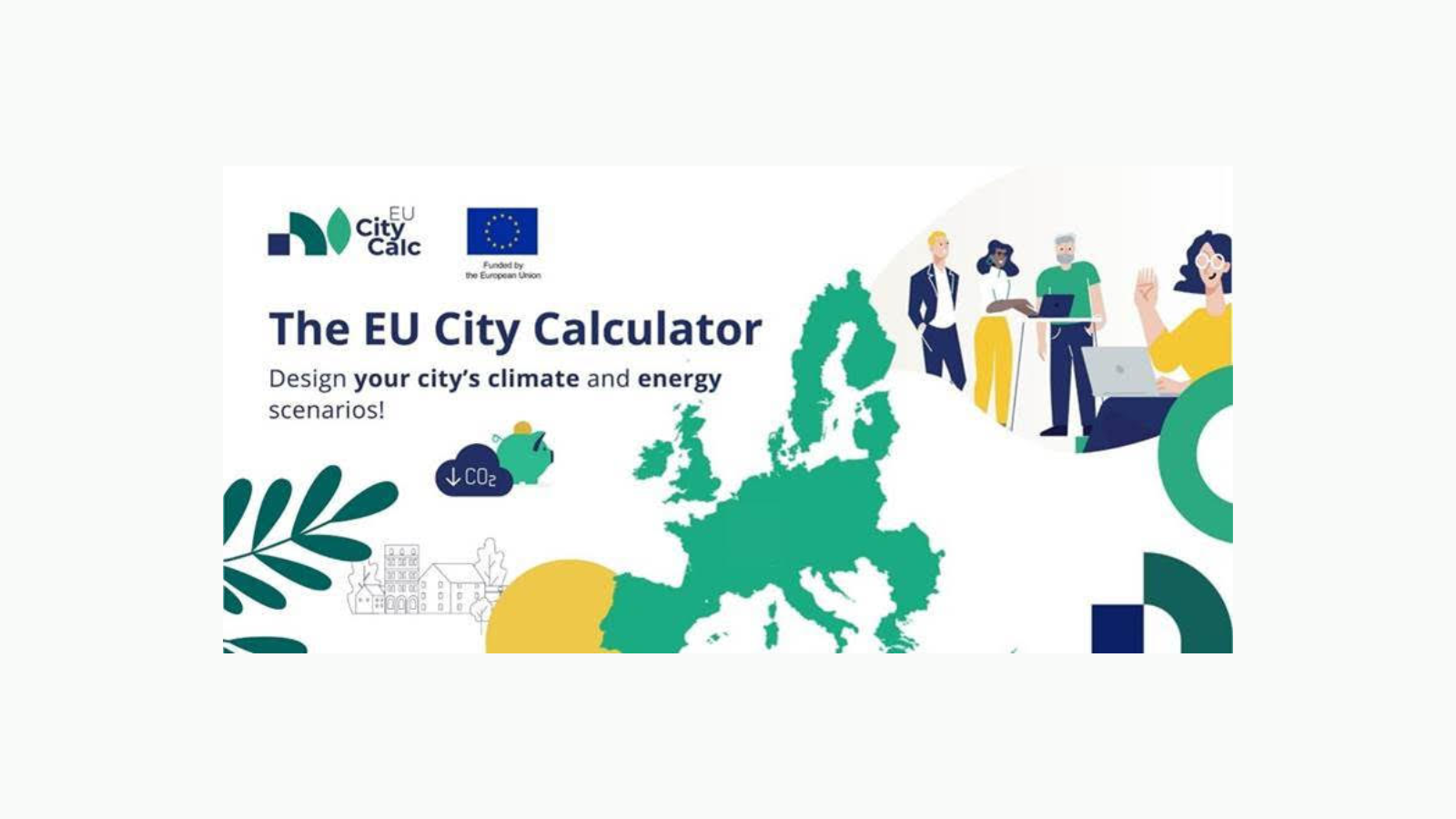
EU City Calculator: a learning programme to support public authorities in reaching climate neutrality
From 26 February 2024, all European cities will have the opportunity to enroll in the EUCityCalc project's learning programme to learn how to collect data and use the EU City Calculator tool, which is a free, open source online platform that allows local councils and other stakeholders to visualise and simulate low-carbon scenarios for their towns and cities, as well as to assess the trade-offs related to available choices.
Cities can integrate their Sustainable Energy and Climate Action Plan (SECAP) data as well as some key socio-demographic trends into the tool. The model completes any missing data (energy, emissions, activity data) thanks to a rich database at the level of each European country. The web tool can then provide public officials with critical insight and foresight into the implications and ramifications of various policy choices and investments. The European City Calculator provides cities with an overview of the different measures and their effects on emission reductions and indication of costs. Cities can build their own climate and energy scenarios, discover their impacts and compare them with their climate and energy targets. The web tool is ultimately designed to make the decision-making and implementation of climate and energy strategies easier for European cities.
The EUCityCalc project, funded by the EU’s Horizon 2020 programme, has tested the tool in 10 pilot cities in different stages of their climate neutrality transition as they have developed locally owned and inclusive transition roadmaps.
Learn more about the EUCityCalc learning programme here.
- Heidi Johansson
- 08/02/2024
-
Working Group
